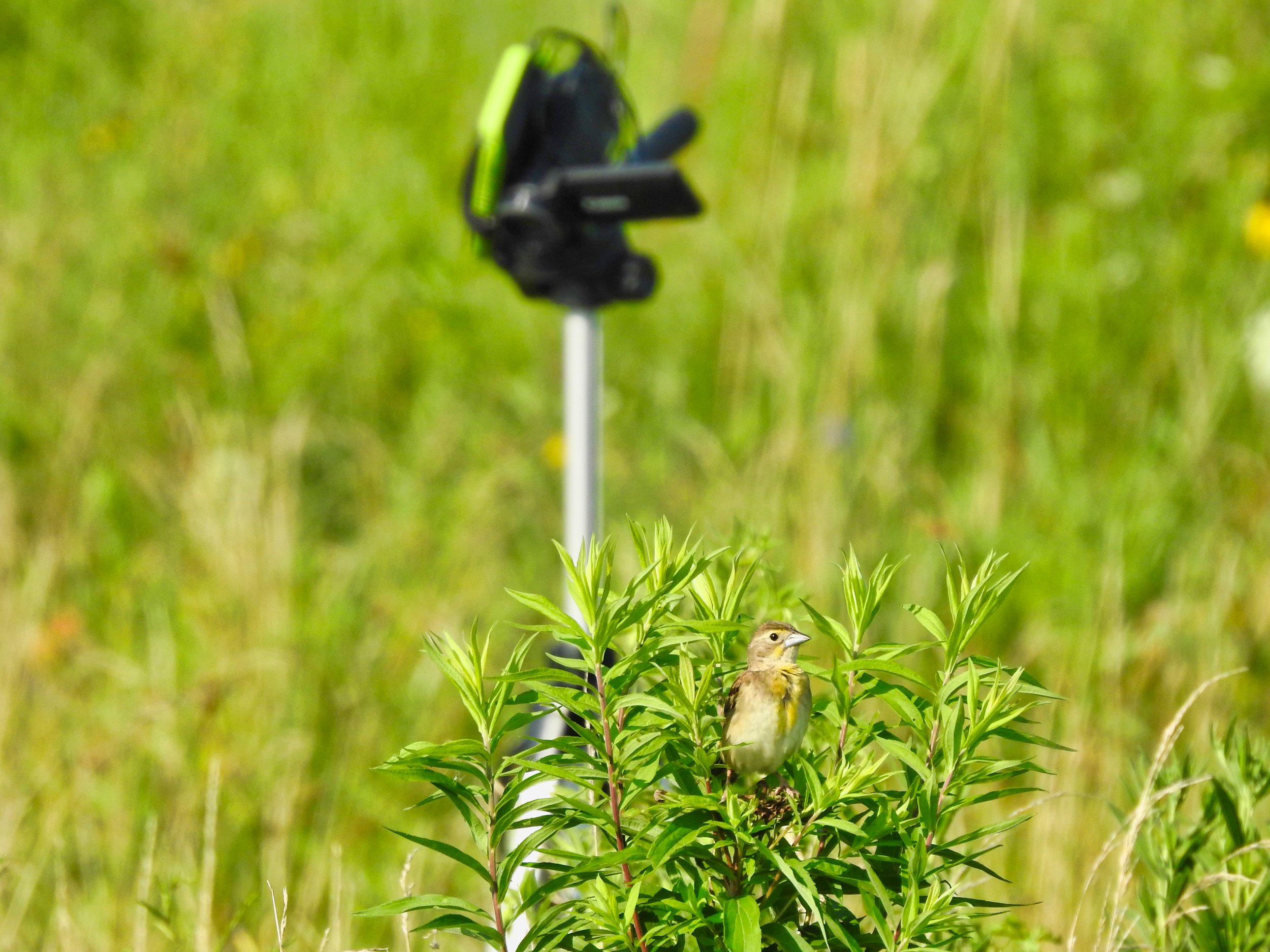Ecology & Society Lab
This lab is focused on exploring both social and ecological dimensions of habitat restoration. We have a special interest in landscapes with a heavy footprint, such as farmers fields, grazed grasslands, or recreational areas. With the understanding that community ecology is the study of interactions between species (including humans), our projects are mostly focused on the interactions between birds, plants, and people.
This work is is both highly collaborative and interdisciplinary, encompassing disciplines such as conservation psychology, conservation biology, wildlife ecology and management, and ecological restoration.
We are located within the Departments of Biology & Environmental Sustainability at Earlham College.
Focus Areas
HABITAT RESTORATION IN
HUMAN-DOMINATED LANDSCAPES
My first research area encompasses studies that evaluate human impacts on biodiversity - including impacts that are both positive (restoration) and negative (invasive species). This research is primarily focused on landscapes with a heavy human footprint, such as recreational areas, grasslands, other agricultural lands. Evaluating how to effectively restore high-quality habitat within these landscapes is a major focus of this work.
Our ongoing studies in this area include exploring how landscape-scale management experiments impact native and non-native plant communities and the abundance, biodiversity, food availability, behavior, and reproductive success of breeding birds or amphibians.
We use methods such as bird surveys, percent-cover measurements of plant functional groups, nest monitoring via camcorder, and drift fences to assess amphibian populations.
CONSERVATION MEANS HUMAN BEHAVIOR
My second research area involves evaluating the relationships between human behavior and conservation. If ecological research elucidates the impact of management on biodiversity, the next logical step is implementing habitat restoration through human behavior change, but that requires understanding how human behavior works, which is easier said than done. Human behaviors that affect the environment are driven by many factors, including human-nature relationships, values, attitudes, norms, morality, and livelihoods. To explore these variables, research in this focus area is grounded in theory from social psychology, focusing mostly on the individual level of decision-making.
We use methods such as semi-structured interviews, mixed-mode surveys, and GIS analysis. Respondents could be farmers, livestock producers, or college students.
NATURAL HISTORY OF MIDWEST BIODIVERSITY
Biodiversity in the Midwest U.S. is under-valued and under-studied. We thus put special emphasis on exploring the natural history of Midwest plants and animals via in-depth, long-term observational studies of plants and animals, primarily in Indiana and Iowa.
Collaborative projects in this area include relationships between brown-headed cowbirds and host birds and biodiversity inventories of parks and recreational areas.
Places
-
Grand River Grasslands
Summer research research often takes places in the Grand River Grasslands, fondly called “the GRG,” a region on the Iowa-Missouri border that is home to large populations of declining grassland birds. The GRG has been identified as one of the best opportunities to restore working tallgrass prairie ecoregion. This is a long-term (2006-present), highly collaborative project, with social, ecological, and agronomic studies.

-
Nature Reserves in Richmond, IN
Several parks and natural areas in Richmond are the focus of research on how nature benefits people and how people benefit nature. These include “Backcampus,” encompassing forests, prairies, and wetlands managed by Earlham College’, as well as the natural areas at Cope Environmental Center. We are interested in how people use, view, value, and restore biodiversity in these Richmond recreational areas.

-
Farms in East-Central Indiana
Farming communities in East-Central Indiana face complex social, economic, and ecological challenges. To help address these challenges, we are investigating how farmers in Fayette County, IN use principles from regenerative agriculture to support both sustainability and livelihoods. Research on farms in East-Central Indiana is a collaboration with the Center for Entrepreneurship, Innovation, and Creativity.




